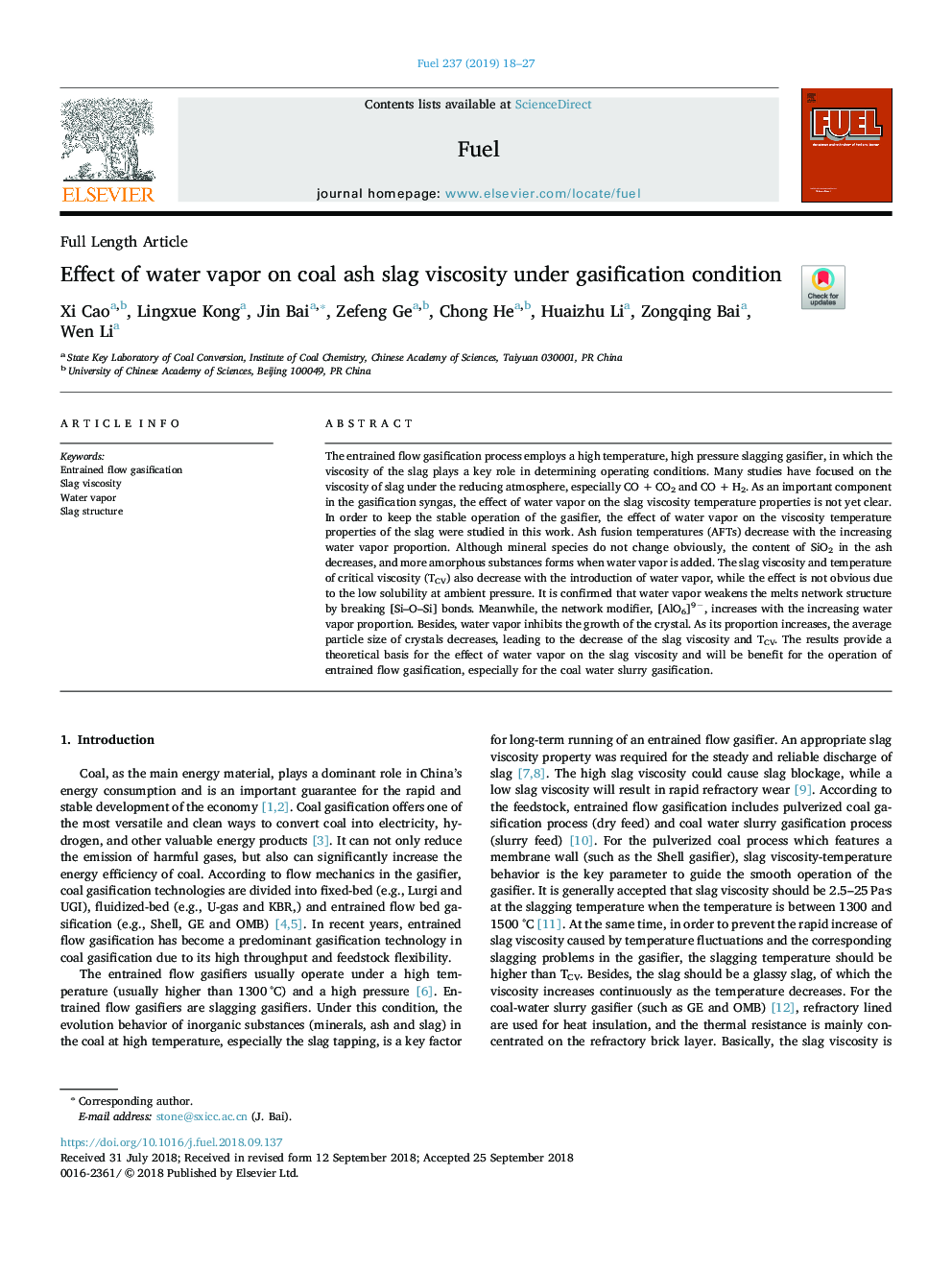| Article ID | Journal | Published Year | Pages | File Type |
|---|---|---|---|---|
| 11016602 | Fuel | 2019 | 10 Pages |
Abstract
The entrained flow gasification process employs a high temperature, high pressure slagging gasifier, in which the viscosity of the slag plays a key role in determining operating conditions. Many studies have focused on the viscosity of slag under the reducing atmosphere, especially COâ¯+â¯CO2 and COâ¯+â¯H2. As an important component in the gasification syngas, the effect of water vapor on the slag viscosity temperature properties is not yet clear. In order to keep the stable operation of the gasifier, the effect of water vapor on the viscosity temperature properties of the slag were studied in this work. Ash fusion temperatures (AFTs) decrease with the increasing water vapor proportion. Although mineral species do not change obviously, the content of SiO2 in the ash decreases, and more amorphous substances forms when water vapor is added. The slag viscosity and temperature of critical viscosity (TCV) also decrease with the introduction of water vapor, while the effect is not obvious due to the low solubility at ambient pressure. It is confirmed that water vapor weakens the melts network structure by breaking [Si-O-Si] bonds. Meanwhile, the network modifier, [AlO6]9â, increases with the increasing water vapor proportion. Besides, water vapor inhibits the growth of the crystal. As its proportion increases, the average particle size of crystals decreases, leading to the decrease of the slag viscosity and TCV. The results provide a theoretical basis for the effect of water vapor on the slag viscosity and will be benefit for the operation of entrained flow gasification, especially for the coal water slurry gasification.
Related Topics
Physical Sciences and Engineering
Chemical Engineering
Chemical Engineering (General)
Authors
Xi Cao, Lingxue Kong, Jin Bai, Zefeng Ge, Chong He, Huaizhu Li, Zongqing Bai, Wen Li,
